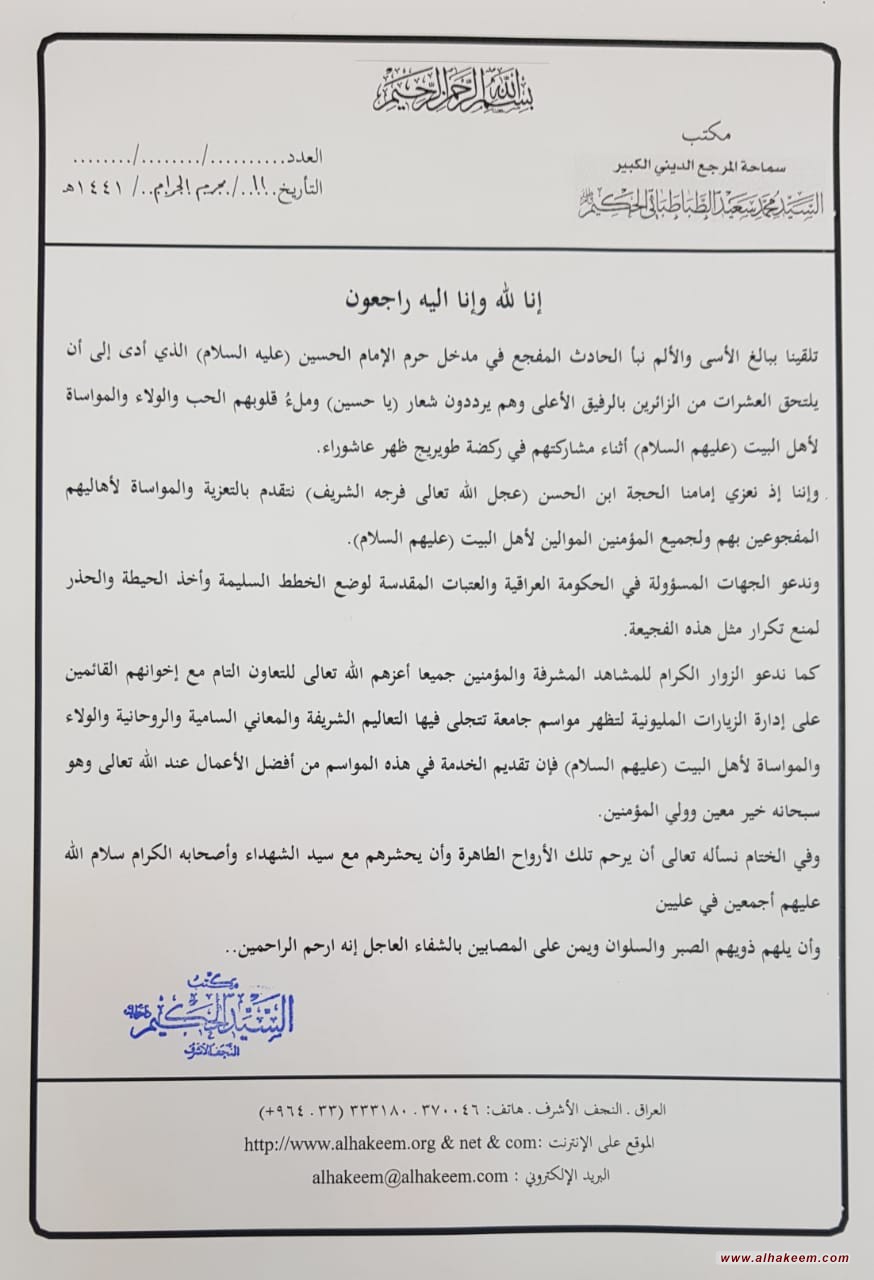
Indeed we are of Allah and to Him we shall return
It is with great sadness and pain that the news of the tragedy at the entrance of the holy shrine of Imam Hussain (peace be upon him) has reached us, which led to the loss of tens of lives, as they repeated the chant “Ya Husayn”, their hearts filled with the love and grief for the Ahlulbait (peace be upon them), during their participation of the Tuwairich Run on the afternoon of Ashura.
We, therefore, pay condolences to the Imam of our Time (may Allah hasten his reappearance) as well as to their grieving families, and to all the believers and lovers of the Ahlulbait (peace be upon them).
We call upon those responsible in the Iraqi government and the Custodianship of the Holy Shrines to establish sound plans and to take precautionary measures to ensure that such a tragedy does not occur again.
Similarly, we call upon all the respected visitors to the holy shrines – may Allah honour them – to act in coordination with the brothers who have been tasked with managing the millions of visitors in order to enable the illumination of godly teachings and guidance, and the expression of love and sorrow for the Ahlulbait (peace be upon them). Indeed, such service during this season is amongst the greatest of deeds in the eyes of Allah Almighty, and He is the greatest supporter and the Guardian of the believers.
In conclusion, we supplicate to Allah Almighty to bless those pure souls and to raise them in the highest ranks with the Master of Martyrs and his noble companions, may Allah’s peace and blessings be upon them all. We pray that He inspires their loved ones who they leave behind with patience and solace, and that He blesses the injured with a quick recovery, for He is the Most Merciful.
11 Muharram 1441
